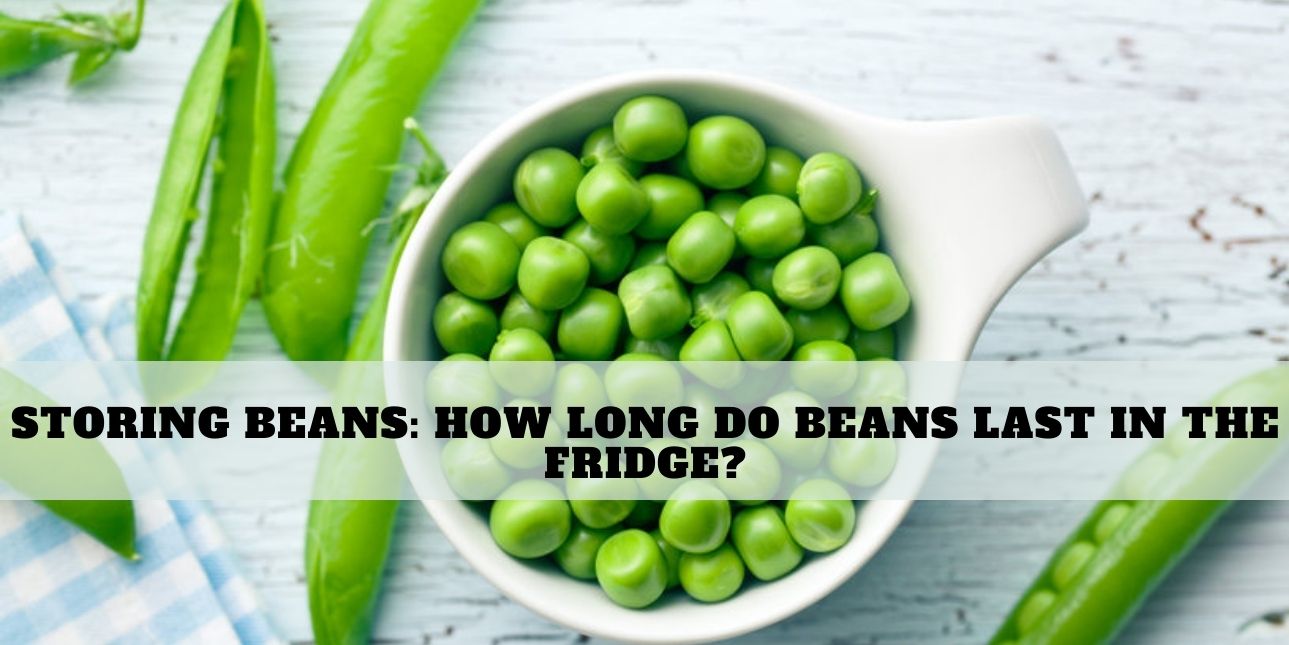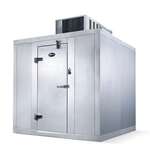
If you’ve ever wondered how long are beans good in the fridge, you’re not alone. Beans are one of the most cost-effective and nutritious foods available in the market today. Whether it’s pinto beans, black beans, fava beans, cannellini beans, or mung beans, storing beans right is essential to derive the best nutritional value from them. The key to effectively using these legumes in your daily diet is understanding how long beans last. While dried beans can last as long as you want them to, the same isn’t true for cooked or canned beans.
To make the best of cooked batches and opened cans, it’s imperative you know how long do beans last in the refrigerator, as they’re the primary forms of cold storage available in commercial establishments and homes. We discuss essential points to keep in mind when storing beans so you don’t end up consuming or serving stale beans, which can lead to conditions like food poisoning.
How Long Do Beans Last in the Fridge?
Beans are found in several forms, whether dried, canned, or cooked. Here are some essentials detailing how long these forms of beans last in the fridge:
- Dried beans: These are by far the safest option when purchasing beans. Dried beans will last almost indefinitely. However, they do tend to lose most of their internal moisture beyond a year, if you intend on storing them in your pantry or your refrigerator. Beyond the one-year period, soaking and boiling these beans will not be enough to cook them efficiently. It is advised that you use up dried beans before a year and cook them so you can store them in a walk-in unit.
- Cooked Beans: If you’re thinking about how long can cooked beans stay in the fridge, the answer is between 3 to 5 days. Beyond this period, beans can develop an oddly sour taste, coupled with a whitish liquid surrounding them, and are effectively unsafe for consumption. However, beans that have gone bad have a characteristic odor, a trait that will enable you to identify them when they’re no longer edible.
- Canned Beans: The tenets of cooked beans apply to canned beans as well. How long do beans last incans? It’s important to note that sealed cans have fairly long shelf lives. However, canned beans that have been opened last only about the same amount of time as cooked beans in the refrigerator. If you’re looking to store cooked and canned beans in a safe space, a walk-in cooler or refrigerator would be a good start.
How Long Do Beans Last in the Freezer?
Beans can also be stored in the freezer to last longer when compared to being refrigerated. Here’s how long beans last in the freezer:
- Dried & Cooked Beans: Since dried beans are capable of lasting for nearly a year, it’s better to cook dried beans before freezing them so they have better utility. But how long do cooked beans last in the freezer? the answer is about 8 months. When packed and stored the right way, cooked beans can be frozen conveniently and are a simple meal-prep option when you’re short on time. You can let the beans thaw out overnight in the refrigerator and then heat them to cooking temperatures before eating them, just to be safe.
- Canned Beans: It is understood that canned, unopened beans last for nearly as long as you would want, a reason why they’re on the list of every backpacking and survival guide. Opened cans should, however, last about the same time as cooked beans, and require similar freezing strategies.Canned beans can be emptied into convenient containers and can be frozen for nearly 8-10 months.
Making Beans Last for Long
Since you now know the answers to questions like ‘how long are cooked beans good for?’ and ‘how long do cooked beans last in the refrigerator?’ It's essential to understand how you can store dried, cooked, and canned beans effectively. Here’s how you can prepare beans to ensure they have a long shelf life in cold storage:
- Soaking Beans:
- If you have dried beans stored in your pantry, you can begin by soaking them for about 6-8 hours.
- The soaking process allows the water to be imbibed by these legumes so that it’s easier to cook them.
- The water within will boil away during the cooking process, softening the insides and making them edible.
- Soaking also removes an invisible layer of complex carbohydrates that lines the seed coat. These compounds are not digestible by humans and can lead to flatulence and sometimes even indigestion.
- Soaking the beans overnight is the best option, and you can rinse them a couple of times before cooking.
- Cooking Beans:
- Once you’re done with the preparatory processes of soaking and rinsing the beans, you can add them to a deep pot along with water up to one inch above their level.
- After adding the spices and seasonings of your choice, bring the water to boil, and skim off any scum that rises to the surface. This removes certain impurities and compounds that tend to leave behind a bitter taste.
- Simmer the stove and let the beans cook for around 2 hours. By the end of the process, the beans should have absorbed all the moisture and flavors from the spices.
- Refrigerating/ Freezing Beans
- Allow the cooked beans to cool completely before freezing. Putting a hot container in the fridge will promote bacterial growth and also damage your fridge or freezer.
- Once cooled, you can split the beans into separate portions. Placing them in airtight containers is by far the best option, better than placing them in bowls or ziplock bags.
- You can leave behind some of the water the beans cooked in within these containers to help the beans retain moisture.
- Seal the containers tight and put them away in the refrigerator or the walk-in freezer.
- The same storage procedure can be repeated for canned beans.
If you want options that help you prepare quick meals or store a bulk amount of beans purchased at a sale, understanding how long beans last in the fridge is essential. When you know how long cooked beans can stay in the fridge, it sorts out your cooking plans and also helps you eat safely, or provide quality food to your customers.









